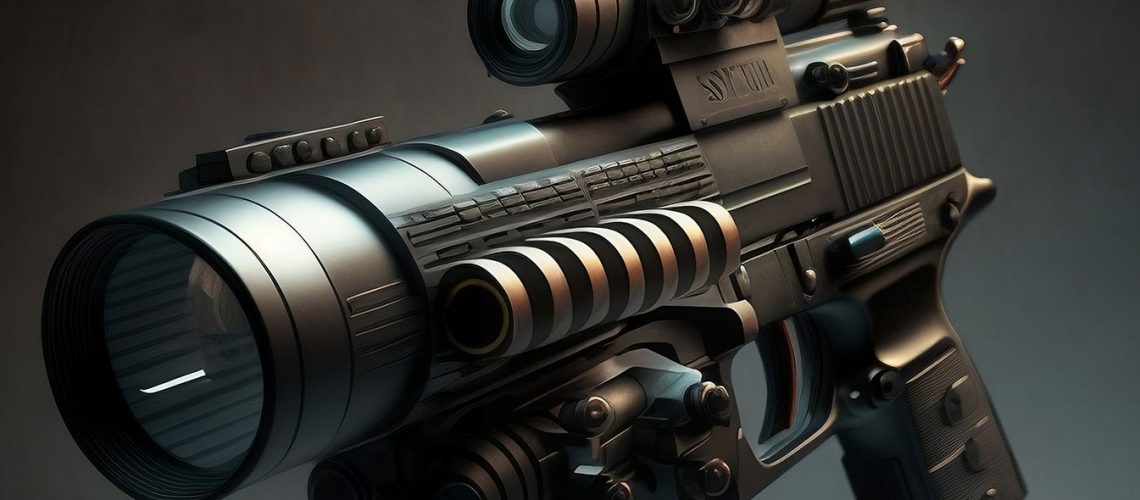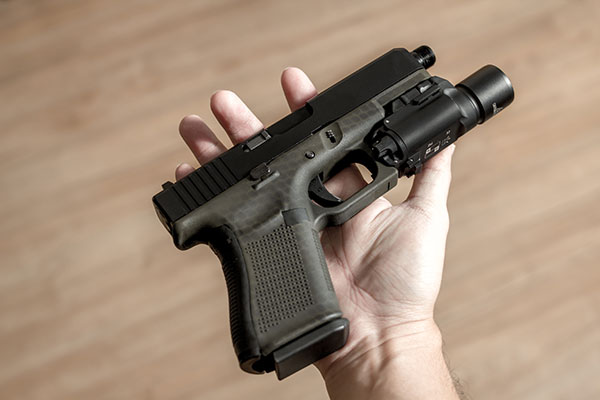 Adding enhancements to a firearm has become more than enjoyable, more than practical, and more than necessary. It’s now a common practice with an industry totally supporting and providing options to gun owners. But the big question is, do customizations increase your legal liability?
Adding enhancements to a firearm has become more than enjoyable, more than practical, and more than necessary. It’s now a common practice with an industry totally supporting and providing options to gun owners. But the big question is, do customizations increase your legal liability?
The answer to that question boils down to how you carry, what your particular preferences are for customization, and how much risk you’d be willing to take in a court of law. With a prosecutor, opposing attorney, a judge, or a jury.
Although there are very few, if any, restrictions on how a gun can be customized, the perception of a customization and its intended use can certainly increase someone’s legal exposure in a court of law. Here are some things to keep in mind.
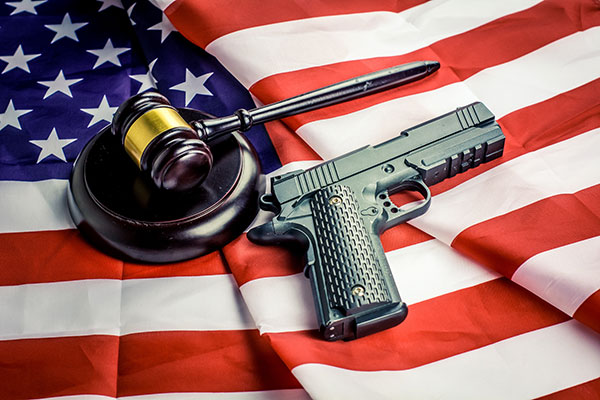 Is there any legal standard for modifying a firearm that is linked in an actual law to affect liability?
Is there any legal standard for modifying a firearm that is linked in an actual law to affect liability?
Although aftermarket gun modifications have limited legal restraints, the key issue—if the gun is to be used for self-defense—is how an opposing attorney might characterize the modifications to your disadvantage in court.
If your modifications can be shown, or described, as having no legitimate “defensive value” then you could potentially be at risk.
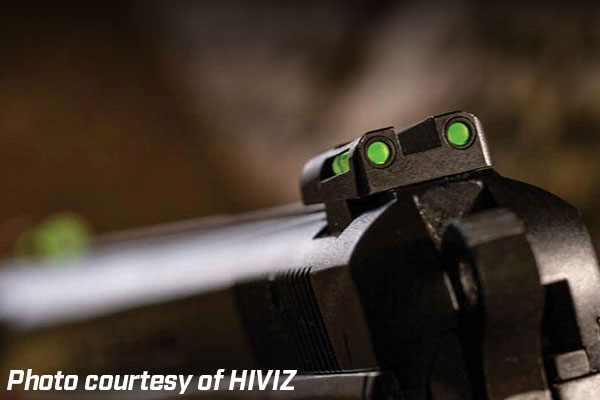 Does the attachment of aftermarket sights (fiber optics, adjustable competition sights, night sights, dot optics) have the ability to affect you legally?
Does the attachment of aftermarket sights (fiber optics, adjustable competition sights, night sights, dot optics) have the ability to affect you legally?
There was a day when an aftermarket sight addition to your firearm could well be interpreted in a way that could make you legally more liable. But, in this day and age, defensive handguns come with sights installed by a factory or custom shop or are mounted by the manufacturer. At this point, their use has become so ubiquitous that they’re universally acknowledged and accepted. And not an “over-the-top” addition designed for harm only.
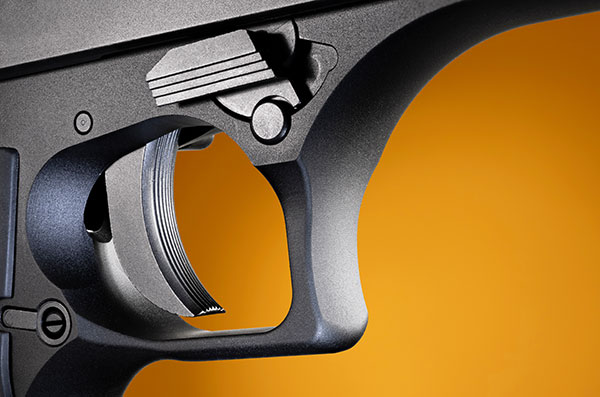 What about enhancing or modifying the trigger on one of my firearms?
What about enhancing or modifying the trigger on one of my firearms?
Although there are no state or federal laws that prohibit modifying the trigger or installing an aftermarket trigger, there’s a bigger consideration here. You might want to think very carefully before installing a binary trigger or auto sear. Not only because of the perception that could weigh against you in a court of law, but because some law enforcement agencies may consider them as machine gun parts.
Certain machine gun parts, auto sears, and automatic weapons components are illegal. Weigh this decision carefullyand consult an expert as to the legality of these additions before making a customization.
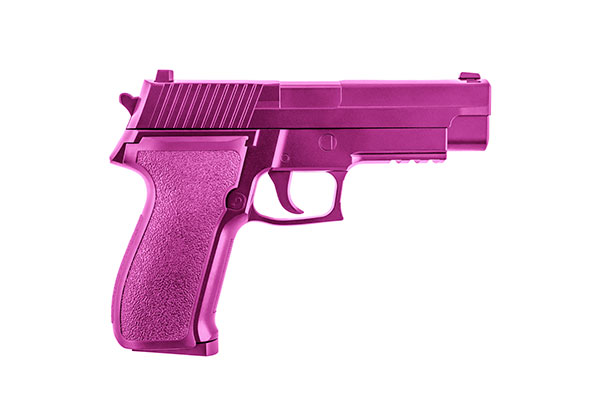 What about custom paint?
What about custom paint?
Those who love camo guns, pink guns for ladies, and other stylistic modifications should keep in mind that if a paint job doesn’t have a legitimate utilitarian purpose, it might not be a great idea, as it could be used against you in court.
 Text on your firearm?
Text on your firearm?
You don’t have to go to law school to realize that certain text or logos or identifiers on your firearm could be problematic. Writing or images that promote anti-social behavior of any kind – drugs, killing, vigilante behavior, or monikers like “Zombie Slayer”, “Punisher”, “Grim Reaper”?
Those could very likely cause an opposing attorney, jury, or judge to alter their perception of your weapon and whether it is being used as a “self-defense only” item.
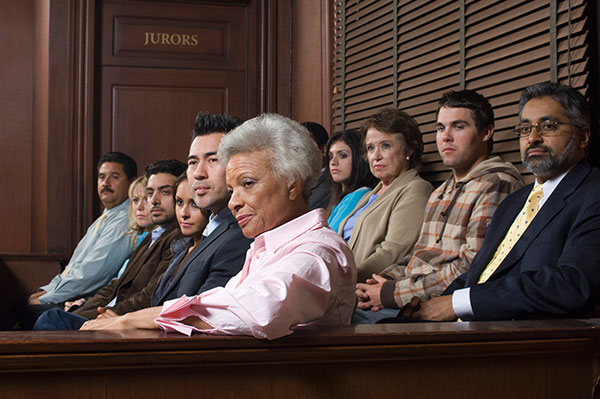 Juries are not always “gun savvy”.
Juries are not always “gun savvy”.
Keep in mind that modifications and customizations that gun owners look upon as harmless, or practical, or functional may not be perceived in the same light by someone with little to no familiarity about firearms.
And there are potentially quite a few people without gun knowledge serving on juries.
So, your decision regarding legal liability as the result of your firearm customizations comes down to weighing your need or desire for the customization against your willingness—or lack thereof—to take risk in terms of a legal proceeding.
Always be thinking about how your customization could be “spun” or “defined” by opposing counsel—or even a judge—in a court of law.
